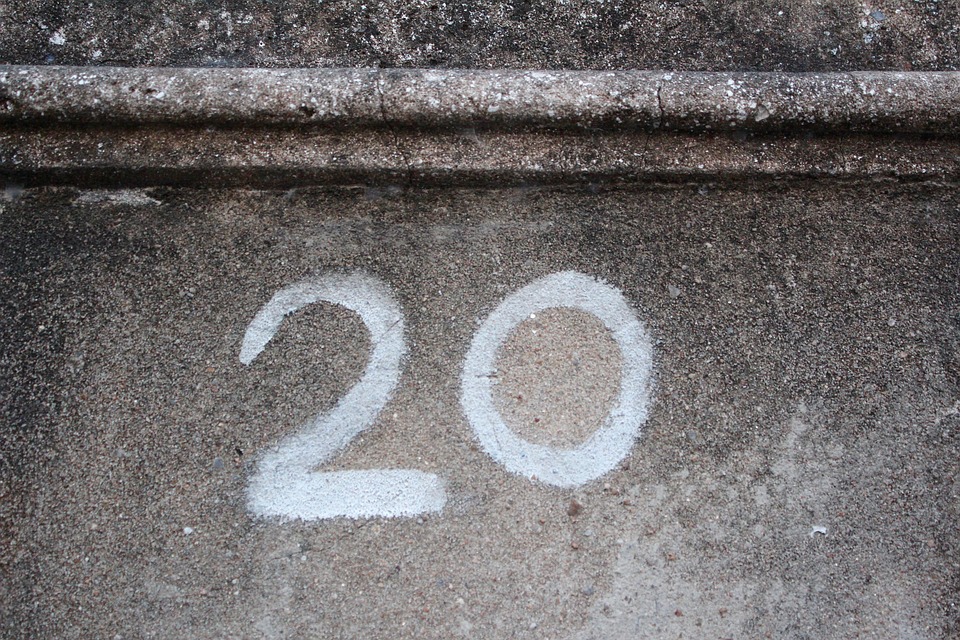Les examens… I’m currently in the middle of exams. I have to passer les examens (take exams) and hope I can réussir les examens (pass exams). That leaves me quite busy, but it also made me realize just how different the grading system is here en France.
The first thing that will jump out to an American is that grades aren’t based on an A, B, C, D, F system or even a 0-100 grading scale. Instead everything is based on a 0-20 scale, with 10/20 being a passing grade.

The other particularity of the French grading system is that there is a strong emphasis on the idea that “personne n’est parfait” (nobody’s perfect). So teachers almost never give out a grade of 20/20! Before people start yelling, “mais c’est faux ! Il y a des profs qui donnent des 20s !” (That’s not true! There are teachers that will give you 20s!), yes, it is true that it is possible to achieve the much desired vingt sur vingt (twenty out of twenty), but in general, on le donne pas (it’s not given out), because “personne n’est parfait”.
There’s another thing that will feel a little bizarre if you’re not used to it. As a result of nobody being parfait, l’idée d’une bonne note (the idea of a good grade) is un peu different compared with their American equivalents.
In France, a 12/20 is already pretty good, a 14/20 is good, and a 16/20 is amazing (18/20 is nigh impossible). Thinking about ces notes (these grades) in terms of just A, B, C, D, F made me feel like I couldn’t do well in France for a long time before I, enfin (finally), started getting used to the French grading system.
Le système d’éducation française (The French education system) is vastly different from the American system. I’ve had to stumble along and learn it as I go, but if there is any interest from the readers, I could start a series of tips and astuces for people who will be studying or are currently studying en France.
If anyone has a specific question about how things work in French universities, feel free to leave un commentaire below!






Comments:
Cathy:
I would be interested to learn more about the French grading system. I taught English in the Peace Corps in Cameroon to French speaking students. They follow the French school system (though I never fully understood it.)
John Bauer:
@Cathy Hey Cathy! Sorry for the late response! That sounds like a pretty cool experience. I had a hard time figuring things out myself. I have some more ideas for posts on French education. Going through French Academia as an American has given me tons of stories.
Anna:
I’m planning on studying abroad in a year for a whole year (my third year of undergrad). I’m interested in knowing what the social attitude is like (amongst many other things). How do people see foreigners? What, in your opinion, is the biggest difference?
How do classes work? I noticed that they don’t count classes by hours.
What would you do differently if you could begin your journey in France again? Would you have brushed up on certain skills?
Did you live on campus or in an apartment, and what was that like?
Thanks!
John Bauer:
@Anna Hey Anna!
I won’t lie, making friends in France can be tough. There’s a cultural barrier that is often hard to get over. The main thing is that it just takes longer to make friends in France than it does in the US.
The entire system and thinking of “undergrad” is completely different. For the most part there’s no choosing your classes like we do in the US. You get a schedule and have to go the classes you’ve been assigned. If you’re going as an exchange student though, you won’t be following that system, so no worries there.
I would figure out how to make friends. Between culture shock and feeling like you don’t belong, feeling like you have no friends on top of that can make you feel really down. I would’ve learned to hide my accent sooner too, but that’s a somewhat contreversial subject!
I’ve lived in an apartment, but the American idea of “on campus” doesn’t really work in France. Universities tend to be in the middle of cities, with different departments spread out throughout the town.
Hope that helps you a bit! If you have any more questions just ask!
Marc:
Nice read and insightful into the grading systems used in France. I studied in Montreal, Canada for four months and even there a couple of the teachers gave us the same reasoning, that no work is perfect in nature and therefore the feel of the grades were different.
Gabreau:
Très Bien ! I really was looking for a site which is able to give me tips to manipulate the french education system ( In which means that to score almost above 16 everytime ) Mais , ce que je viens de lire c’est vraiment la connaissance génerale et je voudrais vraiment savoir les vrais astuces de réussir toujours. J’insiste pas mais là c’est déjà mieux. Do you have any method on how to score as good as the french students ? and plus how to be dynamic in their classes ? To get around.
Lolo:
Hi
The perfect version of the sentence is “Personne n’est parfait”, without the “e” at the end of “parfait”, because in this case it is masculine. (“Personne” is masculine/neutral when it is the translation of “nobody”, not “a person”).
And “des 20” (no “s after the number).
John Bauer:
@Lolo Merci encore Lolo !